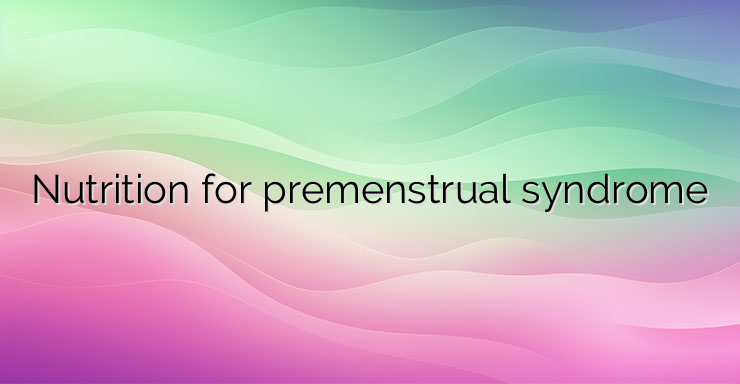Premenstrual syndrome is characterized by numerous symptoms, both physical and emotional, that appear a few days before the onset of menstruation. The causes of these symptoms are the disturbed hormonal balance, the insufficient intake of nutrients and the disturbed balance of neurotransmitters in the blood. All this leads to increased hunger before menstruation, fluid retention and weight gain. In order to alleviate these symptoms, it is important to eat a balanced diet and get magnesium, calcium, iron, Omega-3 and vitamin E. Magnesium has anti-inflammatory properties, reduces nervousness, mood swings, breast tenderness and menstrual pain. To prevent weight gain, it is recommended that women get 300-400 milligrams of magnesium per day. Foods that are valuable sources of this mineral are: Nuts; Cereals; Pulses; Vegetables; Fish. In addition, it is important to limit the consumption of alcohol, coffee and carbonated drinks, which increase the elimination of magnesium. Legumes and cereals allow to avoid drops in blood sugar, they provide the supply of slow carbohydrates and fiber. In addition, they contribute to the production of serotonin – the “hormone of happiness” in the brain, which relieves depression, fatigue and tension. Calcium is another valuable mineral for managing PMS because it affects the balance of mediators in the brain. Omega-3 fatty acids favor the production of anti-inflammatory molecules, reduce uterine muscle contractions and relieve menstrual pain. Valuable sources of Omega-3 are: Salmon; Trout; Mackerel; sardines; Tuna fish; Herring. With premenstrual syndrome, it is important to avoid sudden increases in blood sugar, fluid retention and excessive hunger. Refined products increase the duration of symptoms and the strength of menstrual pain. That is why it is important to avoid the following foods: White bread; Ready-made confectionery; White rice; Beer; Milk chocolate; Biscuits; Breakfast cereals. Sodium is the main ingredient in table salt. This mineral causes swelling, fluid retention and breast tenderness. In order to reduce salt intake, it is important to avoid the following foods: Soy sauce; Sausages; Smoked fish; Pickled foods; Olives; Sour cabbage; French fries; Mustard. References: https://www.passeportsante.net/fr/Nutrition/Dietes/Fiche.aspx?doc=syndrome_premenstruel_diete


Leave a Reply